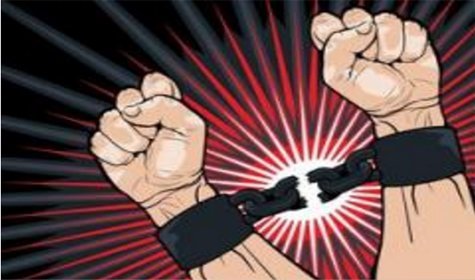Tim Carney recently highlighted how Iowa’s important early role in the Republican primaries has produced “a gravitational pull to pander” on the Renewable Fuel Standard. Its ethanol mandate is “an indefensible subsidy” to Iowans from others’ transportation and grocery budgets for, at best, highly questionable environmental benefits.
Carney cited examples of cognitive dissonance, such as between Chris Christie’s “I want the free enterprise system,” and “we should enforce the Renewable Fuel Standard,” and similarly between Carly Fiorina’s criticism that “government favors … the big, the powerful and the well connected,” and “I support the Renewable Fuel Standard as it currently stands.”
How do candidates try to square the circle on such contradictions? Fiorina would let RFS expire in 2022 when the current law sunsets. Jeb Bush’s “We need to phase that out over the long haul” echoes her position. Marco Rubio said he would not have voted for RFS, “but it is now existing law and I think it would be unfair to simply yank it away from people that have made investments based on its existence.” In each case, they claim principled opposition without requiring them to actually do anything about it, even if elected. The ethanol profiteers attacks on Ted Cruz, for promising to end RFS during his first term, and the warmth they felt for Donald Trump’s “I love it. I’m for it” reveals why.
Injustices Should be Removed Immediately, Not Gradually
But how convincing is the “I’m not really pandering because it’s unfair to change RFS midstream” defense for candidates professing inert opposition? In “other things equal” circumstances, there is clearly an argument for following through on commitments. But other things are not equal with the ethanol mandate. It involvescontinuing to impose harm on those forced to pick up the tab, an ongoing assault that eliminating RFS would stop. Justifying continuing it on the basis of unfairness would require that maintaining the status quo was more important than stopping government from imposing harm on those its most basic duty is to protect. Carney characterized it as, “We’ve been robbing from Peter to pay Paul, and Paul’s taken out a mortgage based on income from the theft. You don’t want Paul to lose his house, do you?”
If an injustice has been done, should it be maintained or eliminated? The well-worn adage that “justice delayed is justice denied” would seem to make the answer clear. For politicians to endorse free markets, while the government they are part of abuses its own citizens to benefit buyers of political favoritism, then drag their feet forever against rectifying the abuse, fails the hypocrisy test.
Leonard Read, founder of the Foundation for Economic Education, long ago considered government’s eagerness to violate rather than enforce citizens’ property rights, but then treat the benefits it transferred to others as inviolable property rights. We could profit from his insights in “Causes of Authoritarianism,” from his 1958 Why Not Try Freedom? In it he addressed what he called the fallacy that “Authoritarianism Should Be Removed Gradually.”
If an act is morally wrong or economically unsound, the quicker it is abolished the better.
Many people seem to hold the view that the beneficiary of special privilege acquires a vested interest in his unique position and should not be deprived of it abruptly. They give little thought to the many persons from whom the plunder has been taken.
[One] privileged … [another] deprived of the fruits of his own labor. Yet, when it comes to the matter of restoring justice, most people will think of the disadvantages suddenly falling upon [the first] rather than the accrued damage done to [the second].
Imagine an habitual and successful thief. For years he has been robbing everybody in the community without their knowledge. … Upon discovering his fraud, should his robbery be diminished gradually or should justice be restored to the community at once? The answer appears too obvious to deserve further comment.
People, when contemplating the removal of authoritarianism, seem to fear that a sudden restoration of justice would too severely disrupt the economy. The fear is groundless.
The fallacy of the theory of gradualism can be illustrated thus: A big, burly ruffian has me on my back, holding me down. My friends, observing my sad plight, agree that the ruffian must be removed. But, believing in the theory of gradualism, they contend that the ruffian must be removed gradually. They fail to see that the only result of the ruffian’s removal would be my going to work suddenly!
There is nothing to fear by any nation of people in the removal of restrictions to creative and productive effort except the release of creative and productive effort. And why should they fear that which they so ardently desire?
Government frequently acts as an agent of theft through the policies it imposes, then treats the prospect of restoring justice as unjust. But this rhetorical inversion of justice as injustice only works if we similarly invert the meanings of logic and illogic. It cannot advance Americans’ shared interests. As Leonard Read argued, every policy reflecting that flawed approach, such as RFS, should be ended as soon as possible. And no one who ducks the issue, disguising their unwillingness to act by supporting phase-outs that are never going to happen, is worthy of Americans’ trust to represent them rather than special interests.
This article appeared at Mises.com at: https://mises.org/library/end-injustices-now-not-later


:quality(75)/https://static.texastribune.org/media/files/3e555808dcf43d155e1dd3d974e189e3/0303%20Panhandle%20Canadian%20JR%20TT%2031.jpg?w=440&resize=440,264&ssl=1)
:quality(75)/https://static.texastribune.org/media/files/5f6cfa2391a3c86463567c002e5043e8/0217%20Cuellar%20Jeffries%20MG%20%2014.JPG?w=440&resize=440,264&ssl=1)
![The Constitutional Authority for State Border Defense and Security [VIDEO]](https://i3.wp.com/austincountynewsonline.com/wp-content/uploads/2024/04/Constitution-Border.jpg?w=440&resize=440,264&ssl=1)
:quality(75)/https://static.texastribune.org/media/files/d1749af8ff9fc79922234d2b56c4c730/0308%20Cruz%20SOTU%20REUTERS%20TT%2001.jpg?w=440&resize=440,264&ssl=1)